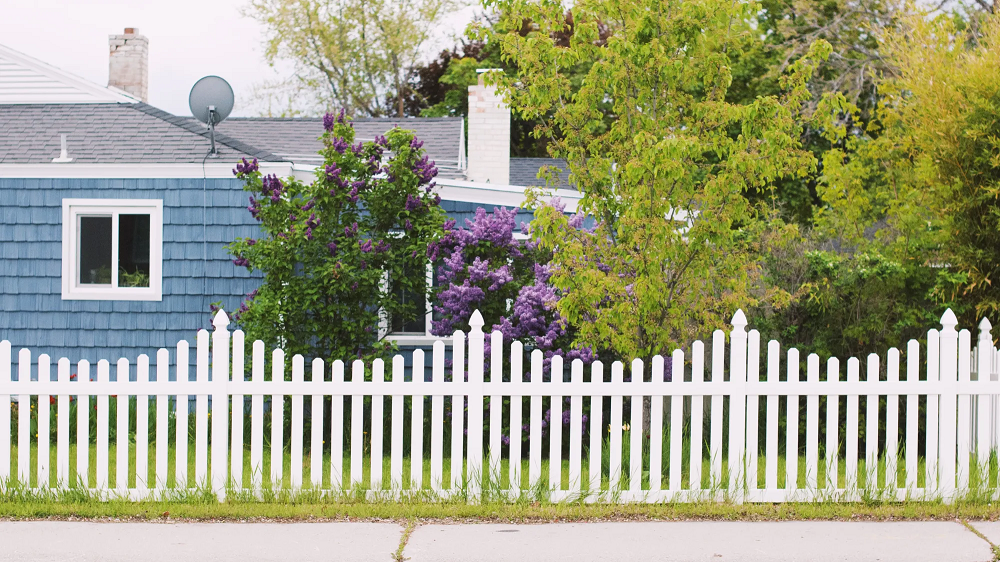Fencing in Leeds is a crucial aspect of property ownership, providing security, privacy, and aesthetic appeal. For homeowners in Leeds, understanding the costs associated with different types of fencing and effective budgeting strategies is essential to making informed decisions. This comprehensive guide will explore the various expenses involved in fencing projects, offer budgeting tips, and provide insights into financing options.
Types of Fencing and Their Costs
- Wooden Fencing
- Cost: £20-£50 per meter
- Details: Wooden fences are popular for their natural look and versatility. The price varies based on the type of wood (e.g., pine, cedar, redwood) and the complexity of the design. Pine is generally the most affordable, while hardwoods like cedar and redwood are more expensive but offer greater durability.
- Vinyl Fencing
- Cost: £50-£100 per meter
- Details: Vinyl fencing is known for its low maintenance and long lifespan. Although the initial cost is higher than wood, it does not require painting or staining, which can save money over time.
- Metal Fencing (Wrought Iron, Aluminium)
- Cost: £80-£150 per meter
- Details: Metal fences provide robust security and a classic look. Wrought iron is particularly durable but requires regular maintenance to prevent rust. Aluminium, while less sturdy, is rust-resistant and requires less upkeep.
- Chain Link Fencing
- Cost: £10-£30 per meter
- Details: Chain link is an economical option often used for boundaries and securing larger areas. It is not as aesthetically pleasing as other types but is highly functional and durable.
- Composite Fencing
- Cost: £60-£120 per meter
- Details: Made from a combination of wood and plastic, composite fencing offers the appearance of wood with the durability of plastic. It is a mid-range option that is resistant to weather and insects.
- Living Fences (Hedges, Bamboo)
- Cost: £10-£50 per meter (initial planting)
- Details: Living fences provide natural beauty and privacy. They require time to grow and regular maintenance, such as trimming and watering, which can add to long-term costs.
Factors Influencing Fencing Costs
- Length and Height of the Fence
- The total cost is directly proportional to the length and height of the fence. Taller and longer fences require more materials and labour, increasing the overall expense.
- Ground Conditions
- Uneven or rocky terrain can complicate fence installation, requiring additional preparation work such as levelling or drilling, which can increase costs.
- Labour Costs
- Professional installation costs vary based on the complexity of the project and local labour rates. In Leeds, labour costs for fencing installation typically range from £30 to £60 per hour.
- Additional Features
- Gates, decorative elements, and additional security features can significantly add to the total cost. Custom designs and intricate patterns also raise expenses.
- Permits and Regulations
- Depending on local regulations, you may need permits for certain types of fencing. Permit fees and the cost of ensuring compliance with local building codes should be factored into the budget.
Budgeting Tips for Fencing Projects
- Set a Clear Budget
- Determine a realistic budget based on your financial situation and the type of fence you desire. Consider all associated costs, including materials, labour, permits, and maintenance.
- Get Multiple Quotes
- Obtain quotes from several contractors to compare prices and services. Ensure each quote includes a detailed breakdown of costs for materials, labour, and any additional features.
- Plan for Maintenance
- Consider the long-term maintenance costs of different fencing materials. For example, wooden fences require regular staining or painting, while vinyl and metal fences have lower maintenance needs.
- Consider DIY Options
- If you have the skills and time, consider installing the fence yourself to save on labour costs. However, be realistic about your capabilities to avoid costly mistakes.
- Phase the Project
- If budget constraints are tight, consider phasing the fencing project. Install the most critical sections first and complete the rest as finances allow.
- Look for Discounts and Deals
- Check for discounts on materials from suppliers or during seasonal sales. Some contractors may also offer discounts for booking during off-peak times.
Financing Options
- Savings
- Using savings to fund your fencing project is the most straightforward option, avoiding any interest charges or debt.
- Home Improvement Loans
- Many banks and financial institutions offer loans specifically for home improvement projects. Compare interest rates and terms to find the best option.
- Credit Cards
- If you have a credit card with a low-interest rate or a promotional 0% APR period, this can be a viable option for financing smaller projects. Ensure you can repay the amount before high-interest rates kick in.
- Hire Purchase Agreements
- Some fencing contractors offer hire purchase agreements, allowing you to pay for the installation in monthly instalments. Ensure you understand the total cost and interest rates involved.
- Government Grants
- Check if there are any local government grants or subsidies available for fencing projects, especially if they improve security or environmental sustainability.
Conclusion
Installing a fence in Leeds can range from a modest investment to a significant financial commitment, depending on the type and scale of the project. By understanding the costs associated with different types of fencing, considering various factors that influence these costs, and following effective budgeting tips, you can manage your fencing project efficiently. Additionally, exploring different financing options can help you fund your project without straining your finances. With careful planning and consideration, you can achieve a beautiful and functional fence that enhances your property’s value and security.

